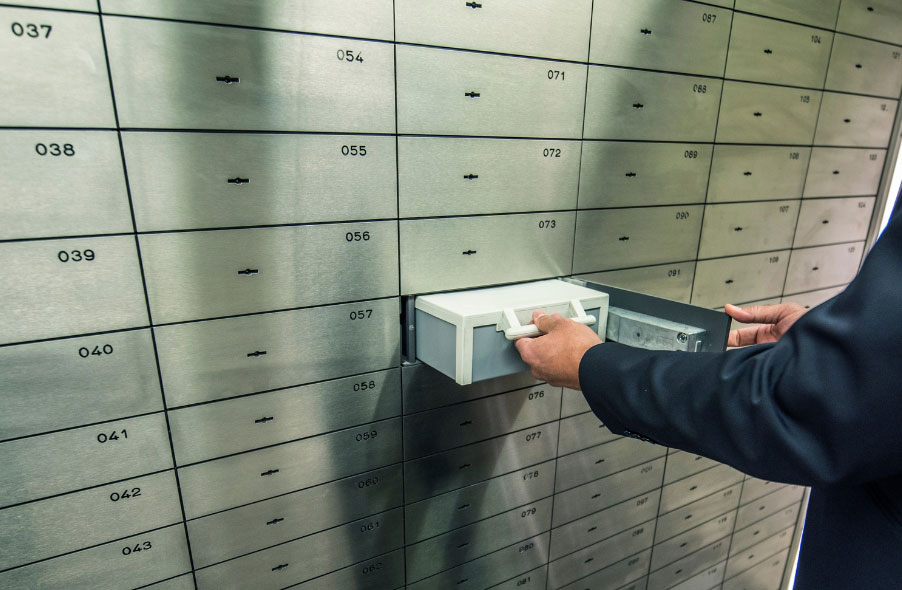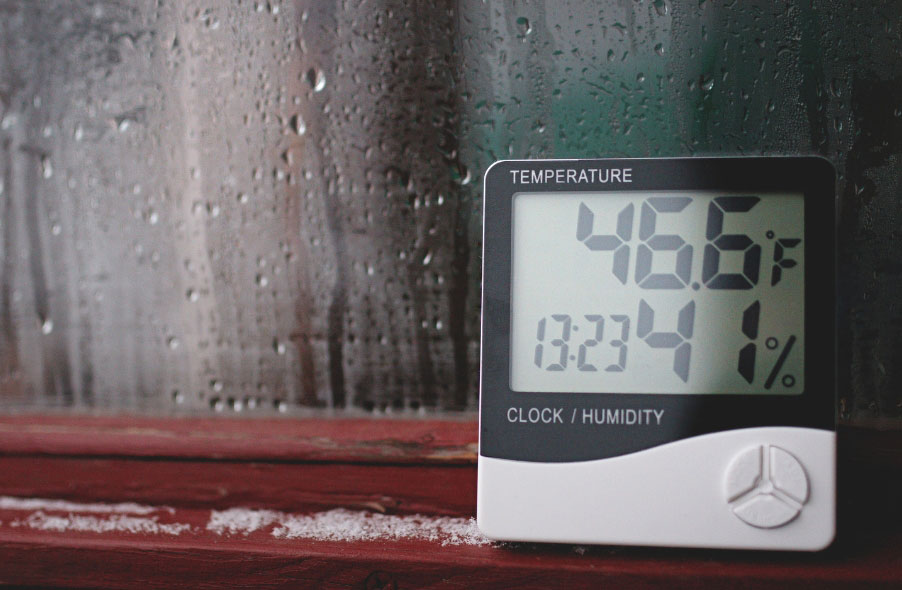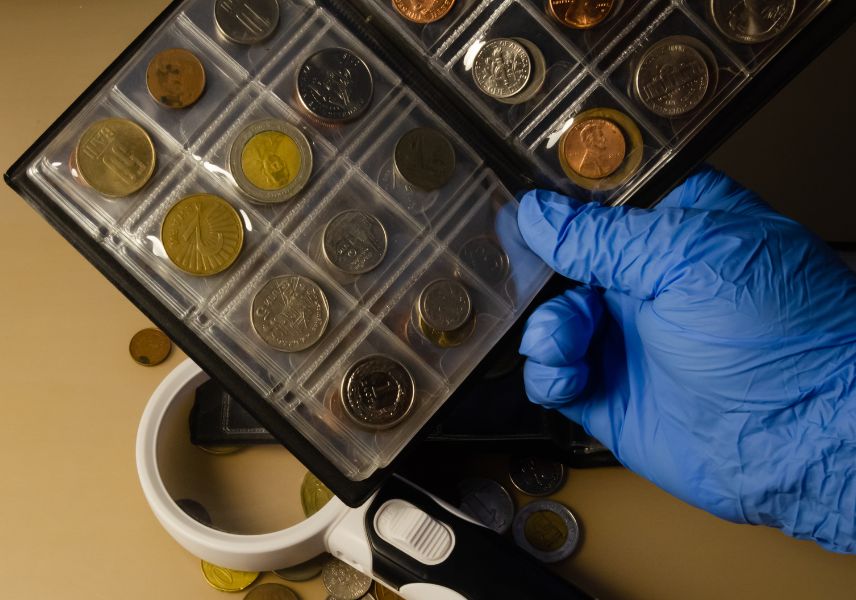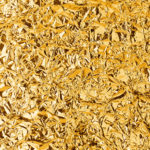Whether you have an extensive collection of precious coins or a single piece to your name, you must protect them with proper storage. This may be done by investing your collectibles in a secure gold IRA account, where a custodian handles your valuables and stores them for you. The other option is to keep them in your possession using strict safety measures.
This guide reveals how to store coins properly so you can keep them safe. Discover tips and tricks from the experts at Learn About Gold.
How Should You Handle Coins When Storing Them?
The best rule to follow when handling gold or silver coins is to keep them in their original packaging along with their certificate of authenticity. This proves the value of your coin should you choose to trade it because it adds authenticity and keeps the coin in good condition by preventing scuffs, scratches, and discoloration.
Handle coins carefully when storing them, and avoid unsuitable storage environments like humid areas with direct sunlight. Pay attention to the materials you store them with to prevent corrosion; use only PVC-free, acid-free coin folders or albums.
Why Is Proper Coin Storage Important?

Collecting rare coins may be a hobby, but more than likely, you’re using bullion coins as a financial investment. You must be familiar with how to store coins properly to preserve the value of the collection and protect it from damage.
The environment in which a coin rests can impact the quality of the metal. Understanding the right way to store coins will help protect your wealth opportunities.
Choose the Right Containers for Your Coins
Now that you know why it’s important to store your coins a certain way, let’s dive into your options for coin storage. The best container for coins is in their original packaging, though you can also use the following alternatives.
Coin Albums
Investors with large collections tend to use coin albums. These containers are easy to store and allow you to organize your coins however you want.
Coin Folders
Do you tend to collect a specific type of coin instead of a mixture? Coin folders are similar to coin albums, but you can organize them according to their style.
Coin Tubes
Coin tubes offer a compact, simple way to store coins, though their presentation might not appeal to everyone. You can stack the coins for safekeeping, but you will need to handle them delicately if you remove them from the tube.
Coin Holders
These plastic or cardboard containers secure the round edges of the coin. They are easy to use but may require a separate case for the coin.
Coin Slabs
See every angle of your coin with clear, plastic coin slabs. Collectors often get these containers from coin shops for easy storage.
Where Should You Store Your Coin Collection?

Location is key when it comes to coin storage. You may keep coins at your house, a bank, or any of the following secure locations.
Home Storage Options
You can keep your collection in a personal safe at home. Make sure you guard your belongings against theft by getting a safe that locks with a key or digital code.
Safe Deposit Boxes
Most banks allow you to secure your belongings in a safe deposit box. These areas are secure, but they may cost you annual storage fees. You may also need to insure any coins in a safe deposit box.
Private Vaults and Depositories
Private vaults and bullion depositories offer more security since they typically offer their own insurance for your coins. These may involve higher storage fees and restrict your physical access, but they also grant you peace of mind.
Bullion Storage Program
Coin collecting is a niche interest, which makes a bullion storage program a great option. You can trust that your coins are in good hands since you’ll be storing them with precious metal experts.
Offshore Storage Options
If you want to protect a portion of your assets from your country’s government and turbulent economy, consider moving your coin collection to an offshore storage program. This option requires careful consideration and adequate research of reputable offshore storage companies so you make the right decision for your financial future.
Factors to Consider When Storing Coins

Say you have a robust collection of coins all in a coin album or their original packaging. You decide to keep it in a personal safe at home so you can easily access it. Those are suitable storage solutions, but you need to consider a few more factors before storing precious coins anywhere.
Temperature and Humidity
Gold, silver, and platinum coins are extremely vulnerable to damage due to moisture and extreme temperatures. You may end up ruining your collection by keeping it in an area with high humidity or high temperatures. According to Professional Coin Grading Services, the ideal temperature for storing precious coins is under 75 degrees Fahrenheit.
Acid-Free Materials
Certain materials you think are protecting your coins can actually damage them. For example, silver can tarnish when you store it in newspaper because of the acid in the ink. Choose hard plastic or acid-free tissue paper for your coins.
Individual Protection
If you want to know how to store coins safely, it’s always smart to keep them in individual packaging. This is especially important if your collection includes a mix of gold, silver, and bronze coins because the firmer metals can scratch the more delicate gold coins.
Avoid Exposure to Air and Light
Finally, you should aim to keep your coins in a dark location since light exposure will alter the metal. Many experts suggest leaving your coins in a safe deposit box or sealed vault. Avoid air exposure since it can impact the coin’s quality, especially if there is significant humidity.
Should You Insure Your Precious Metal Coins?
Whether your collection includes some of the world’s most valuable coins or just a few pieces, insuring it can offer peace of mind. Shop around for different insurance policies that fit your coverage needs if you choose to store your collection at home or in a bank’s uninsured safe deposit box.
You never want to take a risk and keep an uninsured coin collection. If you lose these valuables in a burglary, it’s wealth you can’t get back.
How Often Should Coins Be Monitored and Inspected?
Once you take the right steps to properly store your precious coins, don’t think that you can then neglect them for years. Experts suggest checking your collection every six months. Performing regular inspections will give a glimpse of how your coins are doing in their storage space.
What Should Be Checked During These Inspections?
Check for any signs of damage, such as tarnishing or discoloration. Make the appropriate changes, such as keeping the area temperature-controlled or completely dark. It’s possible you need to change the type of material that contains your coins as well.
Keep up with frequent inspections to see if your adjustments make a difference, and continue to regularly monitor your collection.
Knowing how to store coins the right way optimizes the safety of your collection, so you can preserve your wealth. Take your protection a step further by setting up a gold IRA. Reach out to the helpful team at Learn About Gold for more information about storing valuable coins.





